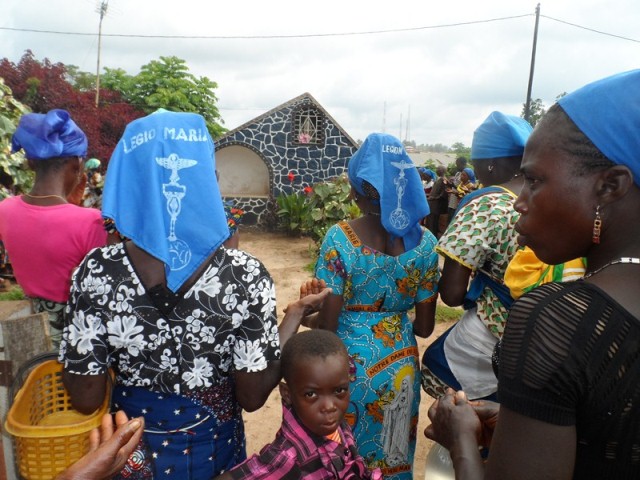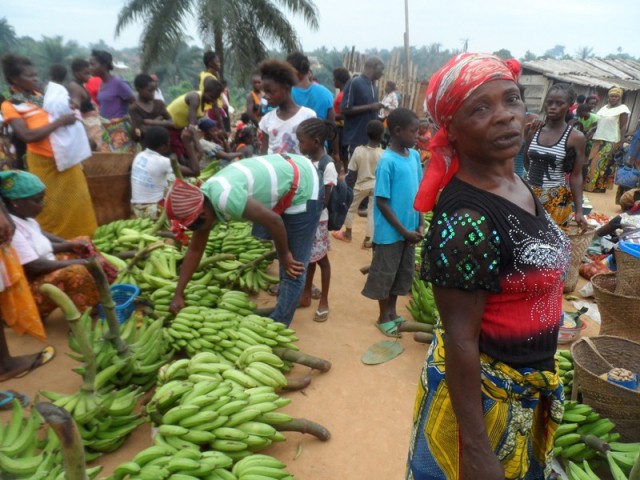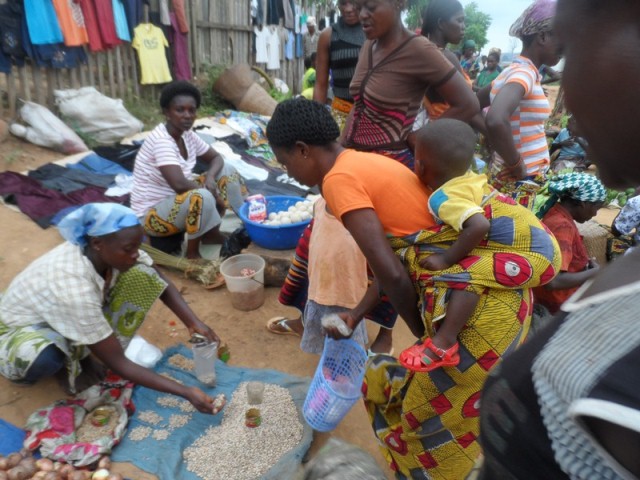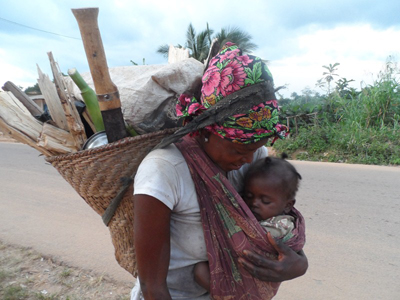
The Patu Woman (The Muyombe Mother)
It is just a month since we arrived at Patu and we have discovered the following from the limited experience we have had of the women.
The life of the Patu woman takes place on two levels: the spiritual level and care of the family. The language spoken in Patu, is kiyombe and the people are called muyombe.
The Spiritual Level
The Muyombe woman is well rooted in the faith, hard-working and very involved in parish activities. Throughout the week she sings in the choir and directs it, plays the djembe – the tom-tom – and joyfully offers the Lord some of the fruits of her labour to support the priests but, above all, to thank God who gives her the strength to work in the fields. Prayer is a priority in her life. She begins the day with Mass and, after the Eucharistic celebration, she goes to the grotto to pray to Our Lady. After her devotions she goes home to do a multiplicity of tasks.
Care of the Family
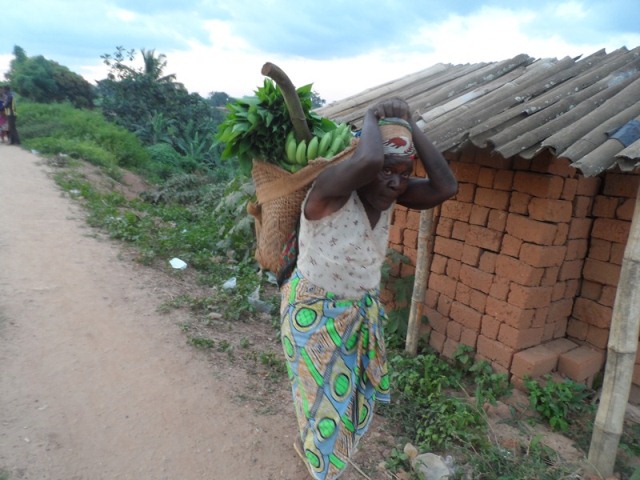
In the evening she arrives home late. She is tired and on her back she carries a well-filled basket of bananas, cassava leaves and tubers and firewood. As soon as she arrives she goes to the borehole to get water for cooking. It is the woman who provides food for the whole family from Monday to Saturday. That is why she goes to work in the fields; each day she brings back the food for everyone’s supper. She mixes the cassava leaves, the unripe bananas and the soft-boiled cassava with a sauce called mwamba. These are things which are easily found and which cost almost nothing because they grow in her field. But the Sunday meal is different from the other days and the man is in charge of this. He has to give his wife money for the Sunday meal; it is a feast. On Sunday the woman has to prepare rice, beans, cassava leaves and salted fish. If the man does not give the woman the money for the Sunday feast it can cause a problem in the home which can eventually end in divorce.
Part of the produce from the fields is sold at the market which takes place on Tuesdays and Fridays and, with the money earned, husband and wife plan the family budget together. The Friday market is more important that the Tuesday one because it provides the money to buy the food for the Sunday feast.
In fact, life in Patu depends on the woman. If she is not hard-working, her children will not develop properly.
The Young Girls of Patu
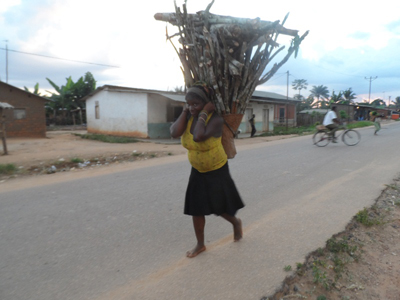 Like her mother, the young Patu girl s very involved in the parish and in the work in the fields. She is joyful and apparently full of ambition. But the reality is that, because of all the difficulties of life, most of these girls become mothers between the ages of 14 and 16. However, some of them, even though they are mothers, return to school because their parents are prepared to pay for their school fees. Those whose parents are unable to pay remain with their mothers. Very few who study have not already had children, and some young girls who have not had children leave school because of lack of money.
Like her mother, the young Patu girl s very involved in the parish and in the work in the fields. She is joyful and apparently full of ambition. But the reality is that, because of all the difficulties of life, most of these girls become mothers between the ages of 14 and 16. However, some of them, even though they are mothers, return to school because their parents are prepared to pay for their school fees. Those whose parents are unable to pay remain with their mothers. Very few who study have not already had children, and some young girls who have not had children leave school because of lack of money.
Attached to this you will find photos of women in the choir, at the grotto, returning from work and at the Friday market.
The community of Patu.

